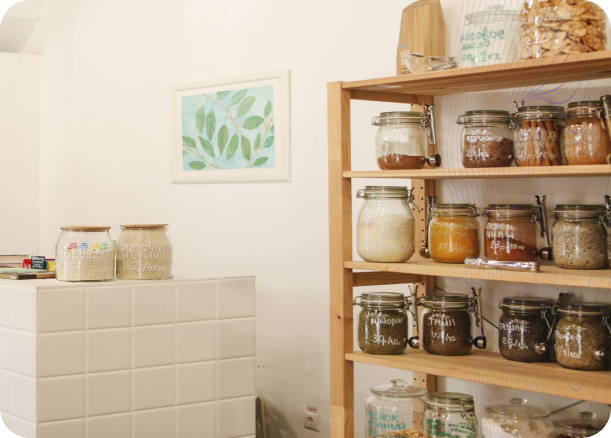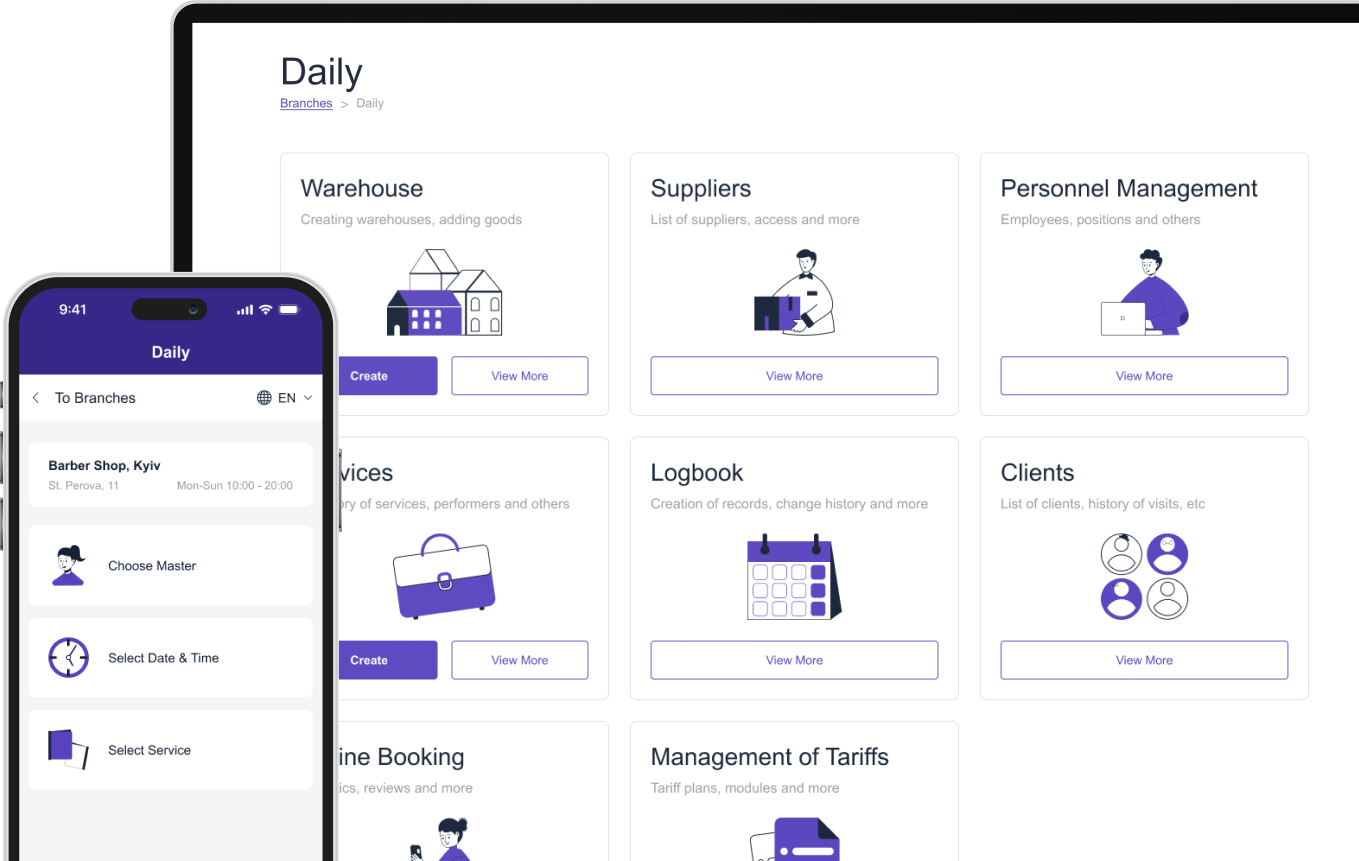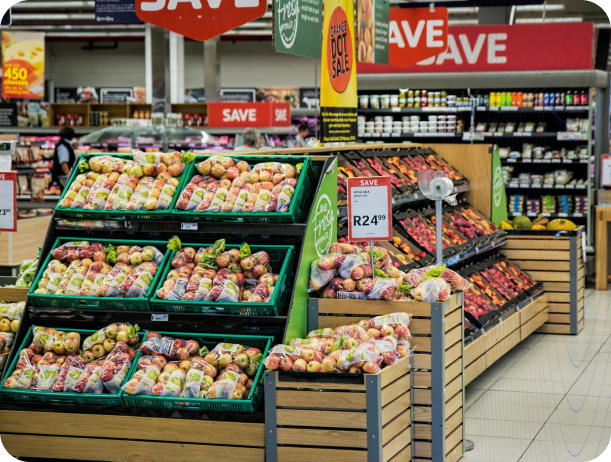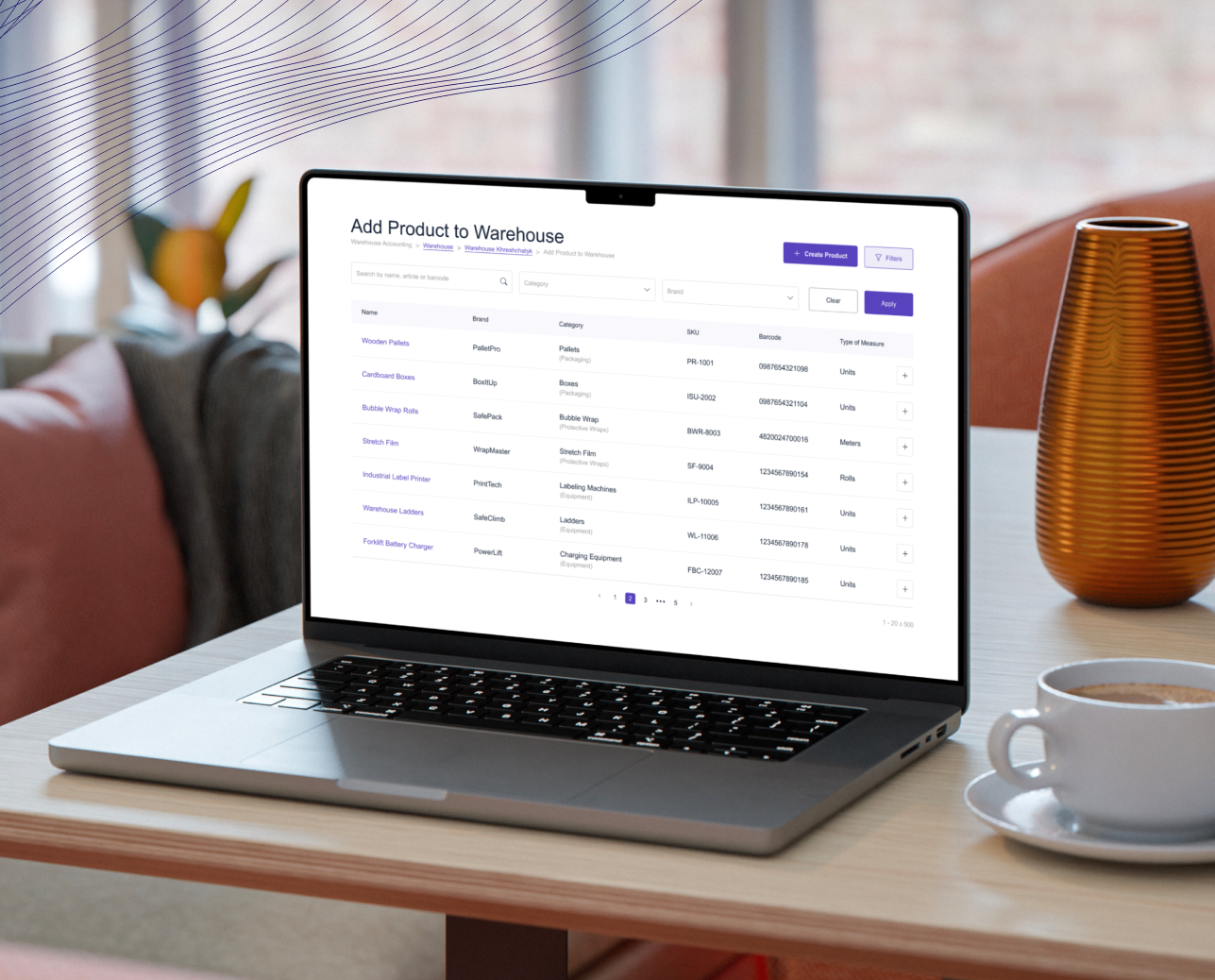Bán lẻ so với bán buôn : Sự khác biệt chính và loại nào phù hợp với bạn?
Cuộc tranh luận lâu đời về bán buôn so với bán lẻ có liên quan hơn bao giờ hết trong thế giới kinh doanh ngày nay. Hiểu được động lực của hai mô hình này không chỉ hữu ích mà còn rất quan trọng đối với bất kỳ ai tham gia vào việc bán, mua hoặc phân phối sản phẩm. Cho dù đang điều hành một doanh nghiệp nhỏ hay đang có kế hoạch khởi nghiệp, việc biết cách bán buôn so với bán lẻ hoạt động có thể tác động đáng kể đến chiến lược và thành công của bạn.
Về bản chất, bán buôn tập trung vào các giao dịch số lượng lớn với các doanh nghiệp khác, trong khi bán lẻ kết nối trực tiếp với người tiêu dùng. Hướng dẫn này sẽ hướng dẫn bạn tìm hiểu về bán buôn so với bán lẻ, sự khác biệt về giá cả, bối cảnh thương mại và nhiều hơn nữa.


Bán buôn và bán lẻ là gì?
Hãy bắt đầu một cách đơn giản. Bán buôn liên quan đến việc bán sản phẩm với số lượng lớn, thường là cho các doanh nghiệp khác. Những người mua này thường là các nhà bán lẻ hoặc nhà phân phối, sau đó bán sản phẩm tiếp. Mặt khác, bán lẻ là tất cả về bán hàng trực tiếp đến người tiêu dùng—bán từng sản phẩm cho khách hàng, tại cửa hàng hoặc trực tuyến.
Vậy, tại sao sự khác biệt này lại quan trọng? Đối với các doanh nghiệp, việc lựa chọn giữa bán buôn và bán lẻ sẽ quyết định đối tượng mục tiêu, trọng tâm hoạt động và mô hình lợi nhuận của bạn. Nếu bạn đang cân nhắc tham gia vào bất kỳ lĩnh vực nào, việc hiểu ý nghĩa của bán buôn so với bán lẻ là điều bắt buộc.
Ví dụ, trong bán buôn, bạn cần nắm vững hậu cần và duy trì mối quan hệ ổn định với các doanh nghiệp. Tuy nhiên, bán lẻ đòi hỏi bạn phải tương tác với khách hàng, thích ứng với xu hướng và đầu tư vào tiếp thị. Những khác biệt này là cốt lõi của thương mại bán buôn so với bán lẻ và xác định cách thức hoạt động của các doanh nghiệp trong mỗi không gian.
Bán lẻ so với Bán buôn
Trong khi thương mại bán lẻ so với thương mại bán buôn có vẻ trái ngược nhau, chúng là hai nửa của cùng một đồng xu. Cả hai đều là thành phần thiết yếu của chuỗi cung ứng và dựa vào nhau để hoạt động hiệu quả.

Hiểu về thương mại bán buôn
Bán buôn là tất cả về quy mô. Người bán buôn mua hàng trực tiếp từ nhà sản xuất và bán chúng với số lượng lớn cho các nhà bán lẻ, người bán buôn khác hoặc người mua tổ chức. Họ thường hoạt động ngoài kho, ưu tiên lưu trữ, quản lý hàng tồn kho và hậu cần. Các doanh nghiệp bán buôn phát triển mạnh nhờ các giao dịch lớn và mối quan hệ khách hàng lâu dài, khiến dòng tiền ổn định trở thành đặc điểm nổi bật của mô hình này.
Một trong những lợi ích chính của bán buôn so với bán lẻ là hiệu quả. Bằng cách giao dịch với số lượng lớn, người bán buôn có thể giữ chi phí hoạt động ở mức thấp và tập trung vào hậu cần thay vì các dịch vụ hướng đến khách hàng. Chiết khấu số lượng lớn và giá cả cạnh tranh là những đặc điểm chính của thương mại bán buôn, đảm bảo rằng khách hàng nhận được những ưu đãi tốt nhất cho các đơn hàng lớn.

Bán lẻ: Kết nối khách hàng
Bán lẻ đảo ngược kịch bản bằng cách tập trung vào người tiêu dùng cá nhân. Đó là cung cấp trải nghiệm mua sắm liền mạch, dù trực tuyến hay tại cửa hàng. Các nhà bán lẻ mua số lượng nhỏ hơn từ các nhà bán buôn hoặc nhà sản xuất, tăng giá và bán trực tiếp cho công chúng.
Bán lẻ là nơi thương hiệu và tiếp thị tỏa sáng. Từ màn hình cửa sổ bắt mắt đến các chiến dịch email được cá nhân hóa, hoạt động bán lẻ xoay quanh việc kết nối với khách hàng và xây dựng mối quan hệ. Khả năng thích ứng với xu hướng của người tiêu dùng là một trong những điểm khác biệt nổi bật giữa bán buôn và bán lẻ.
Cả bán buôn và bán lẻ đều dựa vào hệ thống kiểm kê mạnh mẽ để duy trì hoạt động trơn tru. Các công cụ như ME-POS giúp các doanh nghiệp trong cả hai lĩnh vực quản lý hàng tồn kho, tự động hóa đơn hàng và giảm tình trạng kém hiệu quả.

Giá bán buôn so với giá bán lẻ
Một trong những khía cạnh được thảo luận nhiều nhất về bán buôn so với bán lẻ là giá cả. Khoảng cách giữa giá bán buôn so với giá bán lẻ phản ánh sự khác biệt trong cách thức hoạt động của từng mô hình và cách thức gia tăng giá trị. Giá bán buôn thấp hơn vì chúng dựa trên khối lượng lớn và chi phí cho mỗi đơn vị giảm. Tuy nhiên, giá bán lẻ bao gồm cả các khoản tăng giá để trang trải các chi phí bổ sung như tiếp thị, tiền thuê và dịch vụ khách hàng.
So sánh chi tiết:
Những khác biệt về giá giữa bán buôn và bán lẻ này cho thấy cách các doanh nghiệp điều chỉnh hoạt động của mình để phục vụ đối tượng mục tiêu riêng biệt của họ. Trong khi bán buôn tập trung vào hiệu quả chi phí và quy mô, bán lẻ biện minh cho mức giá cao hơn của mình thông qua giá trị gia tăng và sự tham gia của khách hàng. Cả hai chiến lược đều đóng vai trò quan trọng trong chuỗi cung ứng.

Sự khác biệt giữa bán lẻ và bán buôn là gì?
Sự khác biệt giữa bán buôn và bán lẻ có thể được tóm tắt trong ba lĩnh vực chính:
- Tỉ lệ.
- Khán giả.
- Tập trung.
Bán buôn phục vụ cho các doanh nghiệp, tập trung vào hoạt động quy mô lớn và hiệu quả về chi phí. Ngược lại, bán lẻ là kết nối với từng khách hàng và cung cấp giá trị thông qua cá nhân hóa và tiện lợi.
Lợi ích của bán buôn so với bán lẻ là gì? Đối với người bán buôn, đó là doanh thu ổn định và ít khách hàng hơn để quản lý. Tuy nhiên, người bán lẻ được hưởng biên lợi nhuận cao hơn và cơ hội xây dựng mối quan hệ trực tiếp với đối tượng của họ. Sự khác biệt này giữa người bán buôn và người bán lẻ xác định cách họ hoạt động và thành công trên thị trường tương ứng của họ.
Cả hai mô hình đều có những điểm mạnh riêng, nhưng chúng có một điểm chung: nhu cầu về phần mềm hệ thống kiểm kê hiệu quả. Cho dù bạn đang theo dõi các đơn hàng số lượng lớn hay doanh số bán lẻ, các công cụ như ME-POS đều cần thiết để luôn kiểm soát được hàng tồn kho và đáp ứng nhu cầu của khách hàng.
Hãy đảm bảo rằng Me-Pos Online Booking đáp ứng được nhu cầu và yêu cầu của bạn trước khi đưa ra quyết định cuối cùng.

Ví dụ về Nhà bán lẻ và Nhà bán buôn
Khi xem xét các ví dụ về nhà bán lẻ và nhà bán buôn, có thể thấy rõ hai hệ thống này có mối liên hệ với nhau như thế nào. Các nhà bán buôn như Sysco và Ingram Micro cung cấp hàng hóa thiết yếu cho các doanh nghiệp, cho phép các nhà bán lẻ dự trữ hàng trên kệ. Những nhà bán buôn này là xương sống của các ngành công nghiệp từ dịch vụ thực phẩm đến công nghệ.
Các nhà bán lẻ như Walmart, Target và Amazon lấy những sản phẩm này và mang chúng đến tay người tiêu dùng. Họ tập trung vào khả năng tiếp cận, dịch vụ khách hàng và tạo ra trải nghiệm mua sắm. Các cửa hàng địa phương và cửa hàng trực tuyến chuyên biệt cũng là một phần của thế giới bán lẻ, phục vụ cho các thị trường ngách với các sản phẩm độc đáo.
Hiểu được vai trò của nhà phân phối so với nhà bán buôn so với nhà bán lẻ là chìa khóa để điều hướng chuỗi cung ứng. Mỗi bên đóng vai trò quan trọng trong việc đảm bảo sản phẩm đến được đích cuối cùng: người tiêu dùng.


Phần kết luận
Vậy, bán buôn hay bán lẻ—cái nào tốt hơn? Câu trả lời phụ thuộc vào mục tiêu và nguồn lực của bạn. Bán buôn là lý tưởng nếu bạn muốn tập trung vào hậu cần, hiệu quả và mối quan hệ B2B. Bán lẻ phù hợp hơn với những người phát triển mạnh về sự sáng tạo, tương tác với khách hàng và thị trường theo xu hướng.
Bất kể bạn chọn con đường nào, hiểu được ý nghĩa của bán buôn so với bán lẻ và sử dụng các công cụ như ME-POS có thể giúp bạn thành công. Bây giờ bạn đã biết sự khác biệt, đã đến lúc quyết định: bán buôn hay bán lẻ—phù hợp với tầm nhìn kinh doanh của bạn?
Bài viết này có hữu ích không?
Nhấp vào một ngôi sao để đánh giá!
Cảm ơn bạn đã bỏ phiếu!

Xếp hạng trung bình: 5/5 Lượt bỏ phiếu: 1
Hãy là người đầu tiên đánh giá bài viết này!
Tiếp theo
Giày chống trượt tốt nhất cho nhà hàngTiếp theo
Làm thế nào để đặt tên cho một nhà hàng?Tiếp theo
Làm thế nào để mở một tiệm bánh?Tiếp theo
Làm thế nào để mở một quán cà phê?Xem thêm
Bài viết liên quan
Làm thế nào để giảm thuế thu nhập cho chủ doanh nghiệp?
Với tư cách là chủ doanh nghiệp, việc quản lý thuế thu nhập hiệu quả không chỉ quan trọng để tối đa hóa lợi nhuận mà còn để duy trì sức khỏe tài chính...
Làm chủ nghệ thuật mua sỉ và mở khóa các giao dịch không thể đánh bại
Mua sỉ có vẻ như là một trò chơi dành riêng cho doanh nghiệp, nhưng chúng tôi xin nói cho bạn biết—đó là một mỏ vàng cho bất kỳ ai đủ thông minh để tậ...
Tối đa hóa lợi nhuận trong nhà hàng: Phí dịch vụ so với Tiền boa
Trong ngành công nghiệp nhà hàng cạnh tranh, cuộc tranh luận về phí dịch vụ so với tiền boa tiếp tục định hình trải nghiệm khách hàng và chế độ đãi ng...
Làm thế nào để giảm thuế thu nhập cho chủ doanh nghiệp?
Với tư cách là chủ doanh nghiệp, việc quản lý thuế thu nhập hiệu quả không chỉ quan trọng để tối đa hóa lợi nhuận mà còn để duy trì sức khỏe tài chính...
Làm chủ nghệ thuật mua sỉ và mở khóa các giao dịch không thể đánh bại
Mua sỉ có vẻ như là một trò chơi dành riêng cho doanh nghiệp, nhưng chúng tôi xin nói cho bạn biết—đó là một mỏ vàng cho bất kỳ ai đủ thông minh để tậ...
Tối đa hóa lợi nhuận trong nhà hàng: Phí dịch vụ so với Tiền boa
Trong ngành công nghiệp nhà hàng cạnh tranh, cuộc tranh luận về phí dịch vụ so với tiền boa tiếp tục định hình trải nghiệm khách hàng và chế độ đãi ng...
Xem thêm









































